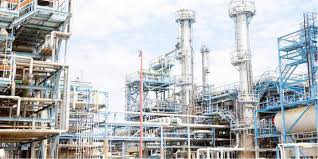The Port Harcourt Refining Company, Nigeria’s largest refinery, has ceased operations just weeks after a $1.5 billion rehabilitation. This shutdown has raised concerns about the effectiveness of the rehabilitation and the country’s refining capabilities.
On November 26, 2024, the refinery was reopened with much fanfare, aiming to produce 60,000 barrels of oil per day. However, by December 19, 2024, reports indicated that the facility was no longer producing Premium Motor Spirit (PMS). The loading area, typically bustling with activity, was found empty, with trucks idling and no fuel being distributed.

The $1.5 billion rehabilitation, approved in March 2021, was intended to revitalize the refinery and reduce Nigeria’s reliance on imported refined products. Despite the substantial investment, the recent shutdown has led to skepticism among stakeholders. Some critics describe the reopening as a publicity stunt, noting that only a few trucks were loaded on the opening day, and only a limited number of loading arms are operational.
The sudden cessation of operations has caused frustration among truck drivers and independent marketers. Many have been unable to purchase products from the refinery due to unresolved pricing issues and limited capacity. The downtime has also delayed the introduction of other essential products like kerosene and diesel, impacting daily household and industrial needs.
Efforts to obtain clarification from the Nigerian National Petroleum Company Limited (NNPCL) have been unsuccessful, with calls and messages to the company’s spokesperson remaining unanswered. This lack of communication has left stakeholders speculating about the true state of the refinery and its prospects for resuming operations.
The repeated shutdowns of the Port Harcourt Refinery highlight ongoing challenges in Nigeria’s oil sector, including issues of transparency, accountability, and the effective utilization of substantial investments. As the country continues to grapple with these challenges, the need for sustainable solutions and greater transparency in the management of its refining infrastructure remains critical.